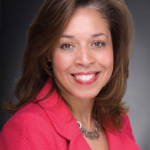 Choosing an historic icon that stood after San Francisco’s great earthquake and massive fire more than 100 years ago was a deft, almost poetic, public relations concept to celebrate Fireman’s Fund Insurance Co.’s sesquicentennial.
Choosing an historic icon that stood after San Francisco’s great earthquake and massive fire more than 100 years ago was a deft, almost poetic, public relations concept to celebrate Fireman’s Fund Insurance Co.’s sesquicentennial.
In April the company so many associate with those events and the city itself invited media, politicians, firefighters and insurance professionals to The Old Mint, future home of the San Francisco Museum at the Mint, to celebrate 150 years in existence and showcase its historic ties with the city.
The event also kicked off a national celebration, which included a traveling exhibit of items from Fireman’s Fund’s history. The exhibit is making eight stops around the country to showcase items or particular interest to each area. At the San Francisco event Fireman’s Fund President and CEO Lori Fouché talked with Insurance Journal about that history, trends in the industry and the company’s future.
Fouché was named president and CEO of Fireman’s Fund in July 2011.
Insurance Journal: It’s been nearly two years since you took the helm at Fireman’s Fund. Are you now, as a company, where you wanted to be when you first took over?
Fouché: Two years ago, when I took over as CEO, one of the things that I and others worked on was really, ‘What is the long-term plan?’ We decided, at that point, that we were on a three- to five-year situation in which that would be the point in time where we would be where we want to be. About 22 months into it, we haven’t realized where we should be and where we want to be, but we are certainly on track for being where we want to be, and that’s really been our focus. Over the course of the next several months, we’ll continue to push forward, and we’re hopeful that we’ll continue to stay on track.
Insurance Journal: Can you talk about your sesquicentennial and what that means?
Fouché: For us to be celebrating our 150th anniversary as a company is unbelievably special. There aren’t that many companies who can claim to have been around for 150 years, particularly financial services firms. Certainly, it’s a testimony to our financial strength to be able to be around, but it’s also a testimony to being able to innovate and stay current with the changes and trends and history and things that come about, because if you don’t innovate, you also may find yourself out of business. Between our financial strength and what we’ve been able to do as a company, keeping pace with changes over 150 years, the great agents and brokers we’ve had and the great employees we have, it’s quite a celebration to be able to say, ‘You’ve made it 150 years.’
Insurance Journal: Fireman’s Fund has ties to several great catastrophes and noteworthy policyholders. What do you feel is the most significant?
Fouché: It’s really difficult to choose any one really significant tie, because all of them have really made us who we are today and what we’ve become. Certainly, we’ve had some noteworthy moments. The San Francisco earthquake is obviously something that was very momentous for us, because it tested our financial stability very early in our beginnings. There have been so many other ones from there that have really been moments in time where we’ve really grown up with America, from being able to insure the Hoover Dam, insure the making of the Golden Gate Bridge, to being able to underwrite the Spirit of St. Louis. There’s so many moments in American history that we’ve been right there. It’s just made us who we are today. They’re all a composite. It is who we are and what we’re so proud of.
Insurance Journal: Where’s the top growth area for you? What will the industry watchers be hearing about most when they hear about Fireman’s Fund?
Fouché: About a year ago, we undertook a process to really understand our book of business and to really understand where the opportunities were in the insurance industry and where we could potentially play. What we’ve really focused on in the short run are those opportunities that we have that we believe we’ve got unique expertise, that we believe we have coverages. For us, there are a number of different areas. One is certainly in the personal insurance high networth area. We have redoubled our efforts in that space. Another one is the farm and ranch business. Excess umbrella from an admitted perspective is an area we’ve historically had great strength in and continue to look forward to growing in. Highly protected risks in the property area is another one that we enjoy expertise, and we look forward to growing more in that space as well. Program business is another area that we’ve been leaders in the industry for a very long time, and we also look forward to growing in that space.
Insurance Journal: According to Wikipedia, you created the first green products in the U.S. Where is this sort of coverage headed? It seems to have gone by the wayside when the economy went in the dumps. How’s it looking now? Are you guys putting resources into this?
Fouché: We were the first insurance carrier to provide green building coverage, in 2006. We were certainly well connected at that point in time and continue to be today. We still have individuals who are on the U.S. Green Building Council, and certainly it’s something that we continue to push and provide. It’s true that we’ve not been as public in the media about it over the last several years, as we had other priorities, but I think over the next year, you’ll begin to hear us talk more and more about that. Certainly, as a company, beyond green building coverage, sustainability and our role as a company and our role in looking at climate change and how it may affect the insurance industry are all things that we have a lot of interest in and making sure that we’re connected to. You’ll continue to hear more about greenbuilding coverage. I think policyholders are interested in that, particularly as sustainability and environmental issues continue to be at the forefront of our national dialog add concerns.
Insurance Journal: Allianz employs nearly 155,000 people worldwide. Can you talk about working in a structure like that?
Fouché: Allianz, based in Munich, Germany, is certainly one of the world’s largest financial institutions and companies. As Fireman’s Fund, being part of it, we’re a proud member of the Allianz family. What’s unique about us is we are a subsidiary of that company. We very much operate on our own in many ways and have 2,500 employees of our own. We really have an opportunity to act like a much smaller company, but we enjoy the financial backing of a parent, and we enjoy the resources and expertise that a company like Allianz has all around the world.
Insurance Journal: Corporate structures are always changing. Change is just essential in the industry. Can you talk about change at Fireman’s Fund?
Fouché: Certainly, from a Fireman’s Fund perspective, we’ve been through our fair share of change. Certainly, some of it is a reflection of changing times, and some of it is a reflection of things that we needed to do that were specific to Fireman’s Fund. About a year ago, we went through a corporate restructuring ourselves, and I feel pretty good about where we are right now. As you rightly point out, change is the nature of the game, and so we certainly look for ways to constantly be more effective and more efficient than we are today. I certainly expect that we’ll tweak as we need to tweak and we find those opportunities. That’s certainly my challenge to the organization, that change is what you need to do in order to continue to keep up, and that’s how we’ve become a company that’s 150 years old. You’ve got to change. You can’t stay where you are and think that’s the best place to be.
Insurance Journal: Speaking of change, where do you see the industry headed?
Fouché: From an industry perspective, as we look at 2013 and beyond, I think the insurance industry, when you look at where rates are going, the industry will talk about and publications will talk about rates being up. The question becomes why, and is that sustainable? Certainly, everyone, I think, tries to price accounts for the right risk, for the right rate, and that’s always the goal, but when you see the rates being up, you wonder, is the hard market right behind it? I think, certainly, there’s some economic factors that cause all insurance companies to look at their investment portfolios, that cause insurance companies to look at how they rate things, and certainly investment yields are part of that economic reality and financial reality that we live in. Certainly, we all keep an eye on interest rates and what that means. I think we’re all tightening our underwriting standards and expectations, because we need to make an underwriting profit on our books of business, and that’s critical for us to be making money. I think, as long as interest rates remain low, we’ll continue to have pressure on making sure that we›re all getting the right rate for the right risk and combined ratios that are sub-100, to be able to make up for the difference. We won’t make up for the difference in the current environment with the pricing the way it is right now.
I think, certainly, looking out beyond that, as the economy improves, that certainly means that the pie expands for all of us as well. I think there’s always growth opportunities. Certainly, the U.S. economy is performing better than most economists would have expected it to. Through that, there’s emerging industries, whether or not it’s the opportunities that health care may provide, whether it’s opportunities that energy may provide in the United States as well. I don’t think that the outlook is really that much different, in some ways, than what it’s been over a longer period of time, but you need to be in tune with what’s going on in order to maximize your opportunities in that space.
Insurance Journal: You did mention hard market. Is the market turning hard?
Fouché: I’m not a prognosticator, and I don’t have the crystal ball to be able to answer that, but certainly, if you look at what everybody’s putting forth in terms of the rate that they’ve achieved on the books of business, if hard market is defined as rate increases above zero over a multi-quarter period of time, then you can define it that way. I look at it from a Fireman’s Fund perspective and say, ‘Get the right rate for the account,’ and that’s what we mostly focus on. Some accounts may have rate increases, some may be flat, some may get rate decreases, but you’ve got to get the right rate for the account.
Was this article valuable?
Here are more articles you may enjoy.


 The $3 Trillion AI Data Center Build-Out Becomes All-Consuming for Debt Markets
The $3 Trillion AI Data Center Build-Out Becomes All-Consuming for Debt Markets  What Analysts Are Saying About the 2026 P/C Insurance Market
What Analysts Are Saying About the 2026 P/C Insurance Market  Insurify Starts App With ChatGPT to Allow Consumers to Shop for Insurance
Insurify Starts App With ChatGPT to Allow Consumers to Shop for Insurance  Zurich Insurance’s Beazley Bid Sets the Stage for More Insurance Deals
Zurich Insurance’s Beazley Bid Sets the Stage for More Insurance Deals 


